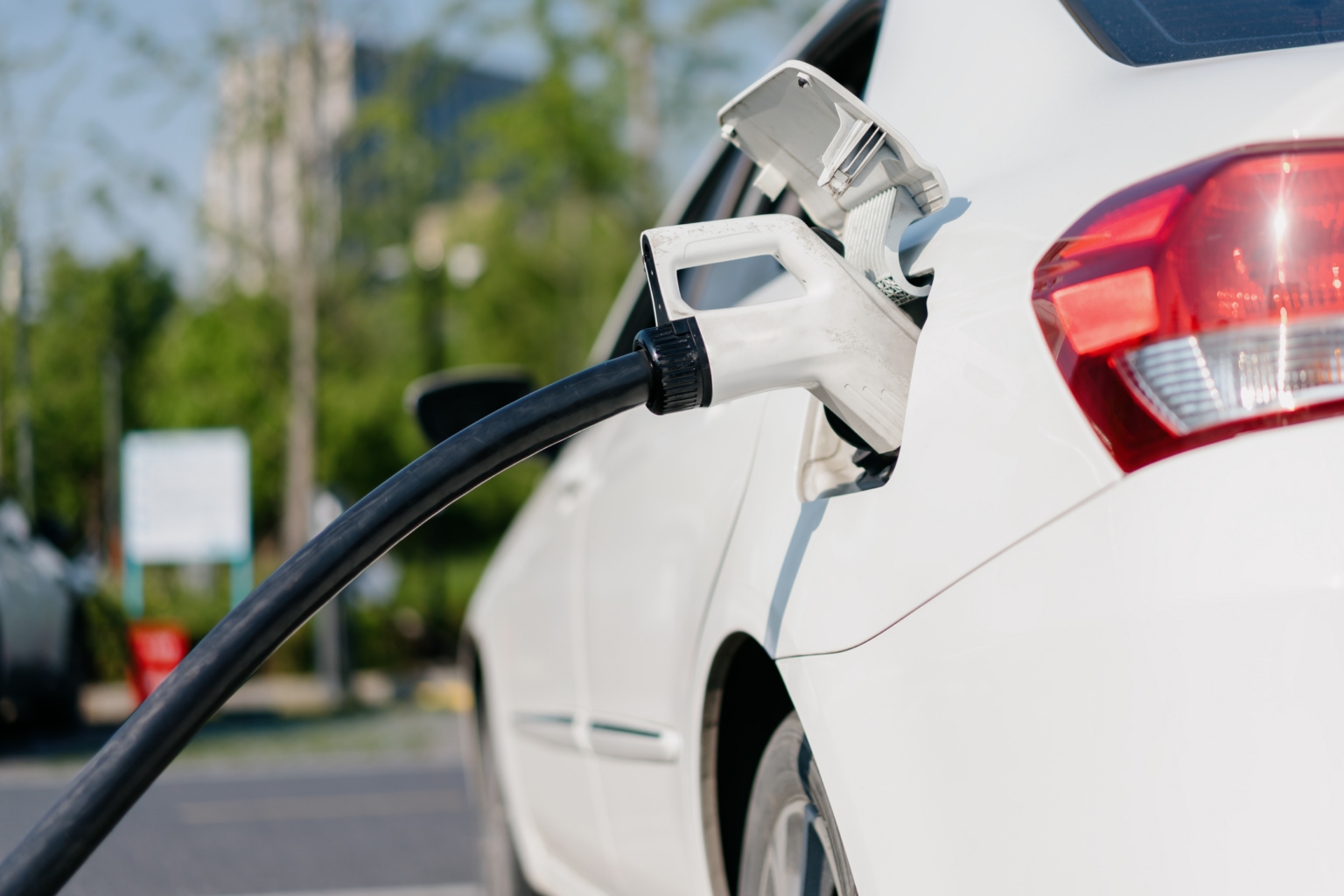BRANDED CONTENT
From home and car loans to investing: How you can benefit by going green
UOB’s John Lau answers your key questions about sustainability, including ESG investing

Singapore has reduced the road tax for EVs, while introducing schemes offering rebates and fee savings for EV owners.
PHOTO: GETTY IMAGES
Follow topic:
If you’re worried about the climate crisis, you’re not alone. About three in four people in Singapore are concerned about the impact of climate change on their lives, said US-based think tank Pew Research Centre in its 2021 study. So what can you do to live more sustainably? What role does sustainable investing play?
In this column, Mr John Lau, UOB’s head of Wealth Management – Treasury, answers some of your key questions about sustainability. Mr Lau, 39, oversees the bank’s treasury product offerings, advisory, sales specialists and dealing. He is also the sustainability lead for UOB’s Personal Financial Services business, and has more than 18 years of experience in the financial industry.
Q: I’m trying to be more eco-conscious. I bring my own bag when grocery shopping and use reusable containers for takeaways. What else can I do to live more sustainably?
A: It’s fantastic that you are actively doing your part for the environment. We shouldn’t underestimate the impact we can make if all of us take small steps to live more sustainably.
An eco-friendly practice you can adopt with your finances is to always question whether something is a need or a want. Cutting down on purchases we don’t truly need can reduce unnecessary waste and, as a bonus, help us save more given today’s rising cost of living.
Of course, many of our expenditures are unavoidable. When you do shop, consider buying from green merchants. We are trying to help consumers make more conscious choices by offering deals through the UOB EVOL credit card with sustainable merchants, ranging from dining and fashion to home furnishing companies.
We can also make a difference right where we live. For example, the EVOL card offers rebates and deals on green energy plans. If you are thinking of buying a new home, consider one with a BCA Green Mark certification, which means its design and operations are certified to be more eco-friendly.
Our UOB Go Green Home Loan offers incentives for choosing such homes. Our U-Solar programme also makes it easier for you to switch to solar power, so you can reduce your carbon footprint and save on utility costs at the same time.
Sustainability starts with our everyday choices. Every little bit counts.
Q: I need a car to drive my young kids and parents around, and I’m considering an electric vehicle (EV). But the current Certificate of Entitlement (COE) costs are so high. Any tips on how I can own a car without breaking the bank?
A: COE prices have reached record highs lately, but if you do need a car, there are many ways owning an EV can help you save money.
In recent years, the government has reduced the road tax for EVs, while introducing schemes offering rebates and fee savings for EV owners. With Singapore aiming to phase out petrol and diesel vehicles by 2040, we will likely see other future programmes designed to make owning an EV more affordable and convenient.
To help EV owners save even more, our UOB Go Green Car Loan offers promotional interest rates and three months of free charging. On top of that, you receive three Renewable Energy Certificates (RECs). RECs represent energy produced from renewable sources, which means you can help support the development of renewable energy projects through your loan.

Q: I’m interested in sustainable investments. What are the benefits and where do I start?
A: Always understand your risk appetite before you invest. The key principle behind our Risk-First Approach is to consider risks before looking at the returns you’d like to achieve. This way, you take the appropriate amount of risk given your financial goals and time horizon.
Interestingly, sustainable investing is one way to manage risk in your investments. It can help you steer clear of companies with problems like weak environmental, health and safety controls and poor business conduct. After all, issues like pollution lawsuits, shareholder disputes and regulatory fines tend to be highly damaging to a company’s bottom line.
With sustainable investing, you can also direct your money towards innovative companies working to solve important global issues such as climate change. Companies that do so successfully are more likely to stay relevant and deliver strong returns in the future.
There are many ways to dip your toes into sustainable investing. There are funds such as those found within the SimpleInvest platform in the UOB TMRW banking app that allow you to invest in a diversified collection of sustainable companies. A financial adviser can help if you are looking to invest in a specific theme or have particular sectors or industries in mind.
Q: I’ve heard a lot about ESG investing. Will all investments be ESG in the future?
A: “ESG” stands for “environmental”, “social” and “governance” factors. These factors are taken into account, in addition to financial metrics such as revenues and profits, in a sustainable investing approach.
Many of us are familiar with the “E” in ESG, which considers an investment’s impact on the environment. But social and governance factors are also important when assessing investments. Social factors include a company’s labour practices and how it engages with the community, while governance refers to how well companies are run. Social and governance factors play equally crucial roles in whether a company can deliver consistent, long-term value to shareholders.
As ESG investing gains greater momentum, we can expect to see more of such investment offerings, but we should also be wary of “greenwashing”. This is when an entity claims to have green practices but fails to do so in reality.
Rethink Your Wealth is a fortnightly advice series where experts share insights and answers to your money-related questions.

